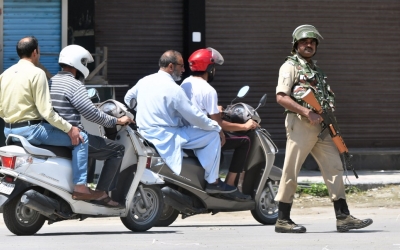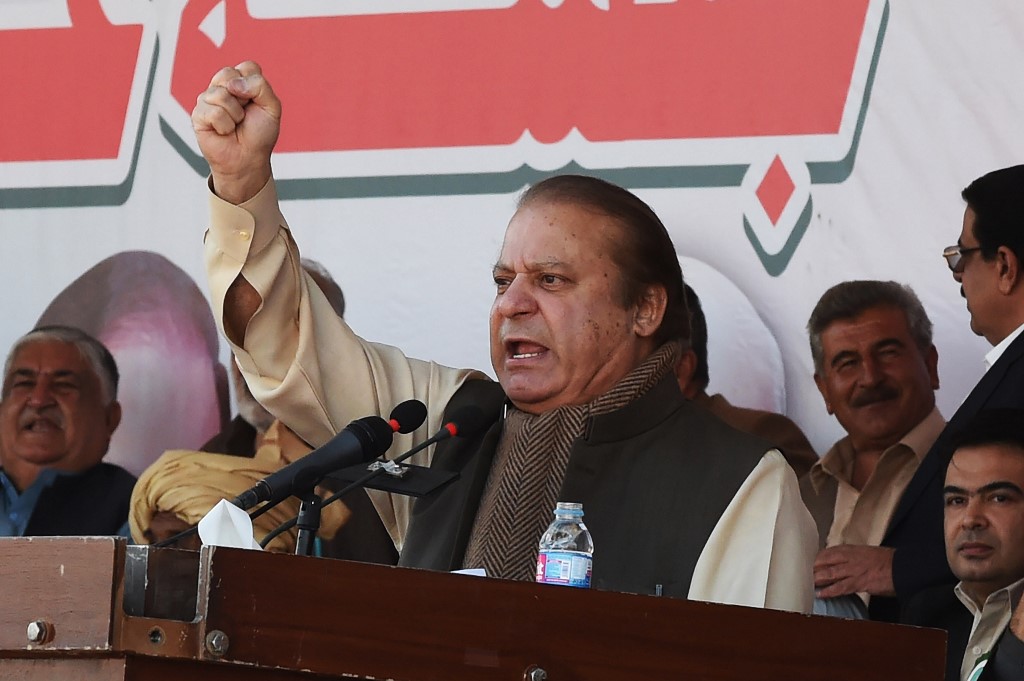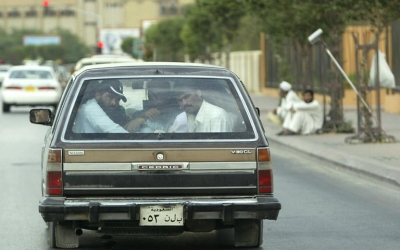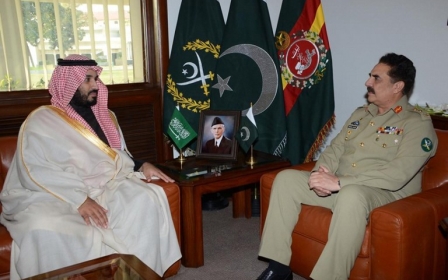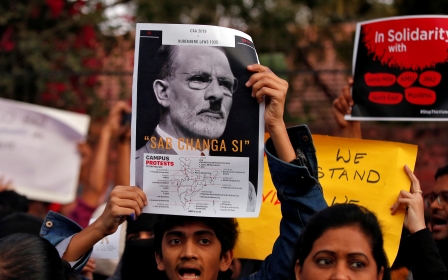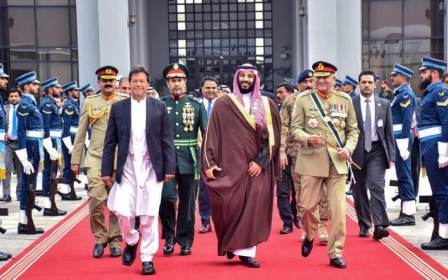Saudi Arabia's special relationship with Pakistan may be on borrowed time
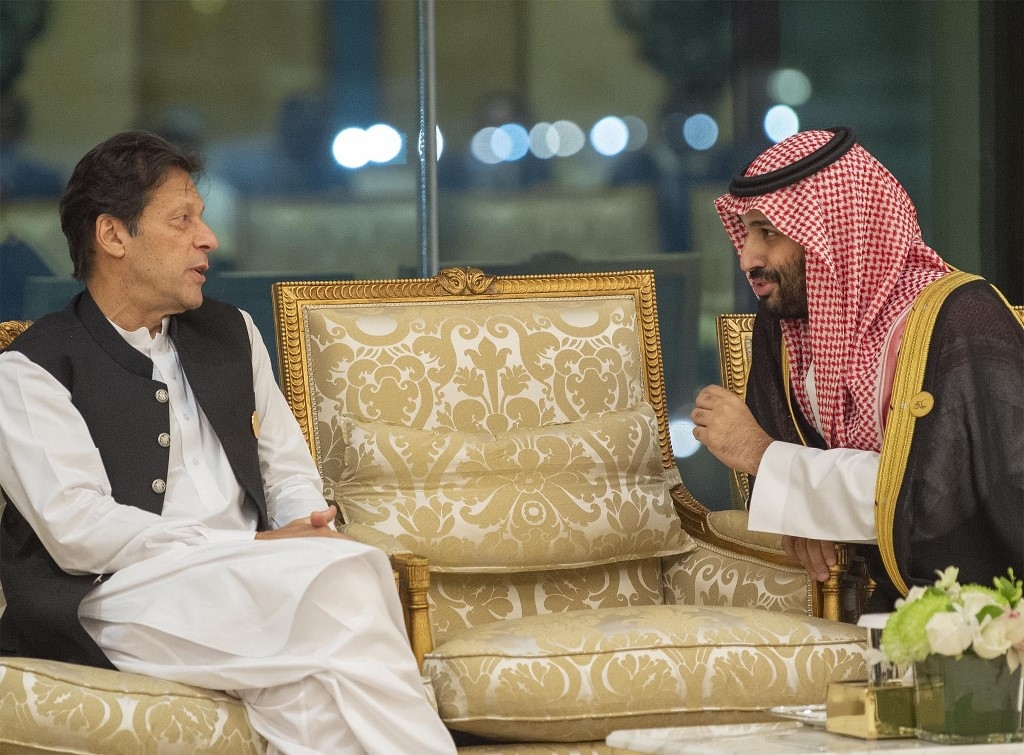
When India revoked the autonomy of the Muslim-majority state of Jammu and Kashmir and imposed a brutal crackdown one year ago, the response from much of the Islamic world was muted.
Pakistan, which administers part of Kashmir and rejects India’s territorial claims, strongly opposed the action. The Organisation of Islamic Cooperation (OIC), a group of 57 states that represents the interests of Muslims worldwide, issued a critical statement.
Islamabad has never been a mere proxy of Riyadh, and cracks have been showing in their relationship for some time
But the OIC did not accept Pakistan’s request to convene a foreign ministers’ meeting to discuss the issue. And Saudi Arabia and the UAE, which once stood with Islamabad on Kashmir, did not criticise India’s move.
Far from it. The UAE honoured Indian Prime Minister Narendra Modi with a prestigious award soon after the decision was announced, and Saudi Arabia invited him to a glittering investment forum in Riyadh. Both countries have developed closer economic and security ties to India in recent years.
Saudi Crown Prince Mohammed bin Salman visited New Delhi in February 2019 and pledged huge investments across multiple sectors. In August, just days after India’s Kashmir decision, a $15bn energy deal was announced.
New MEE newsletter: Jerusalem Dispatch
Sign up to get the latest insights and analysis on Israel-Palestine, alongside Turkey Unpacked and other MEE newsletters
Fed up with the Gulf states’ approach, Pakistan’s foreign minister, Shah Mahmood Qureshi, lashed out at Riyadh. In very rare public criticism of the kingdom, Qureshi slammed Saudi Arabia and the OIC for their inaction, and vowed to hold a separate meeting.
This is not an idle threat. Last December, Malaysia hosted a summit including Iran, Qatar and Turkey to discuss issues affecting Muslims. Pakistan agreed to attend, but eventually withdrew under Saudi pressure.
Pakistan may be strong-armed again. Shortly after Qureshi’s interview, it was revealed that Saudi Arabia had prematurely called back a $1bn loan and had not yet renewed an agreement to defer payments on $3bn of Saudi oil imports.
Relying on Saudi largesse
This might be unrelated to Kashmir. Riyadh could be trying to plug holes in its coronavirus-stricken budget. Saudi Arabia’s economy has been hit hard by the lockdown and oil-price slump, forcing the kingdom to triple VAT and make more than $25bn in spending cuts.
The loan and payment deferrals were part of a $6bn bailout package offered by Saudi Arabia in 2018 to shore up Pakistan’s tottering economy. Over the years, Pakistan has relied heavily on Saudi oil and financial largesse.
In return, it has exported labour to the Gulf kingdom, where more than two million Pakistani workers reside. On the security front, Pakistan has deployed tens of thousands of troops to Saudi Arabia in recent decades. The two also engage in joint military training and exchanges.
While there were concerns that Pakistani Prime Minister Imran Khan might not be as favourable to Saudi Arabia as his predecessors, he attended an investment forum in Riyadh in 2018 after many foreign dignitaries had backed out over the Jamal Khashoggi killing.
But Islamabad has never been a mere proxy of Riyadh, and cracks have been showing in their relationship for some time. For starters, Pakistan has long had cordial relations with Iran, Saudi Arabia’s nemesis.
Not only do the two countries share a long land border, but around 20 percent of Pakistan’s population is Shia, the majority denomination of Iran, and there have been some very prominent Pakistani Shia politicians, including the country’s founder, Muhammad Ali Jinnah.
Sectarian tensions
It is in large part because of this sizeable Shia community that Pakistan has tried to avoid taking sides in the Saudi-Iran rivalry. Signing up to Riyadh’s anti-Iran crusade could inflame sectarian tensions and plunge Pakistan into the sort of chaos seen in Syria and Iraq.
Pakistan has repeatedly voted against Saudi-backed UN resolutions that criticise Iran. In 2015, Islamabad refused to commit combat troops for the Saudi invasion of Yemen. Its refusal was all the more striking because then-Prime Minister Nawaz Sharif was very close to the kingdom, having once sought refuge there after a military coup drove him from power in 1999.
Saudi Arabia was evidently enraged by Sharif’s ingratitude and cancelled a speech he was supposed to be giving at a large gathering in Riyadh attended by US President Donald Trump in May 2017. When the Qatar crisis blew up the following month, Pakistan remained neutral.
Before becoming prime minister, Khan was conciliatory towards Iran. He strongly supported the 2015 nuclear deal and opposed the appointment of Pakistani general Raheel Sharif to head a new Saudi-backed military alliance because it might antagonise Tehran.
Since taking office, Khan has repeatedly tried to mediate between the two rivals. In 2019, after attacks on Gulf oil facilities, the prime minister travelled to Riyadh and Tehran to soothe tensions. After the US assassination of Iranian general Qassem Soleimani in January, Qureshi visited the two capitals. Such efforts are not new: in 2016, Pakistani leaders conducted shuttle diplomacy to calm tensions after Saudi Arabia’s execution of a Shia cleric.
Leeway on Kashmir
Pakistan has been suspicious of Iran because of its relationship with India. But last year, India stopped importing oil from Iran due to US sanctions, and its investments in Iranian gas and infrastructure projects are on life support.
This has given Iran more leeway when it comes to Kashmir. For years, Tehran avoided wading into the dispute. But Iran’s supreme leader condemned India’s revocation of the region’s autonomy last August.
Pakistan, for its part, may gravitate increasingly towards the Turkey-Qatar-Iran-Malaysia camp
The collapse of Iran’s oil exports allowed Saudi Arabia to snap up some of its market share. India already received a sizeable portion of its oil from the kingdom, but imports increased by 32 percent after Trump reimposed sanctions on the Iranian energy sector.
At the same time, Pakistan’s economic relationship with Saudi Arabia is showing signs of long-term decline. Oil is becoming less important to Pakistan as it relies more on liquefied natural gas from Qatar and Chinese-backed coal projects.
Pakistan’s economy has typically depended heavily on remittances from workers based in the kingdom. But since the end of the global commodity boom in 2014, remittance flows have dipped, and they are set to fall dramatically this year due to Covid-19.
Migrant labour in decline
As part of a “Saudisation” push, Saudi Arabia has been on a drive to reduce migrant workers and employ more locals. This will likely pick up pace thanks to the coronavirus crisis and the drop in oil prices, which make it harder for Riyadh to subsidise unemployed Saudis.
But even with oil imports and migrant labour in decline, Pakistan’s economic relations with Saudi Arabia will still be greater than its ties to Iran. Trade with Iran in 2019 was just over $500m, a fraction of that with Saudi Arabia.
Pakistan recently pulled out of a long-delayed gas pipeline deal with Iran because of US sanctions. Plans to link the Pakistani and Iranian ports of Gwadar and Chabahar will remain a pipe dream as long as sanctions throttle Iran’s economy.
Last year, Saudi Arabia’s crown prince visited Pakistan and pledged $20bn of investment, including for a new oil refinery in Gwadar. Yet, Riyadh’s plans may be revised due to the coronavirus slowdown.
On the same overseas trip, bin Salman signed $100bn in deals with India. India’s energy-hungry economy is nine times the size of Pakistan’s, and it has far more to offer in terms of trade and investment than its crisis-prone neighbour.
Forming a united front
Pakistan will remain an important security partner for Saudi Arabia and economic cooperation will continue, albeit in reduced form. But in the longer term, New Delhi could surpass Islamabad as Riyadh’s key strategic ally in South Asia.
Pakistan, for its part, may gravitate increasingly towards the Turkey-Qatar-Iran-Malaysia camp. It has close and long-standing ties to Turkey, receives energy from Qatar, and could make more progress on Kashmir by forming a united front with those powers.
Pakistan’s relationship with Saudi Arabia will survive, but it will not be as “special” as it once was.
The views expressed in this article belong to the author and do not necessarily reflect the editorial policy of Middle East Eye.
Middle East Eye delivers independent and unrivalled coverage and analysis of the Middle East, North Africa and beyond. To learn more about republishing this content and the associated fees, please fill out this form. More about MEE can be found here.



